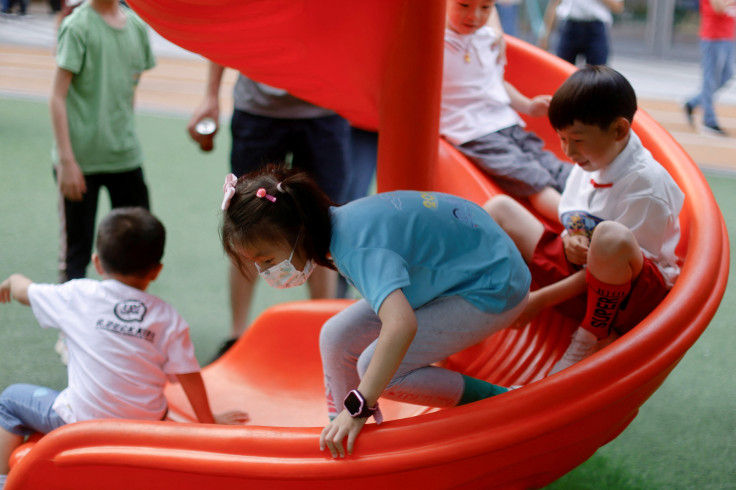Childhood Expert Suggests That Play is Crucial For a Child's Brain Development
The expert's book challenges the traditional division between play and learning, emphasising the role of playing in the early years of education.

Why is it that children, particularly young children who are known for being filled with seemingly endless amounts of energy, enjoy playing so much?
Previous research highly suggests that the act of play gives children different sensory, physical and cognitive experiences. In turn, these experiences build connections in the brain, thus helping children to develop physical, cognitive, social and emotional skills.
Through play, children ultimately learn about the world around them and themselves in the process.
But is a young child's brain specifically designed to be playful? And in turn, does this crucial design consequently lend itself to a healthy child's development?
These exact questions were undoubtedly the basis for a recently published book titled 'The Brain that Loves to Play', written by Middlesex University childhood expert, Dr Jacqueline Harding, who is also the director of Tomorrow's Child, a children's research company.
The message of the book can be summed up in Dr Harding's own words:
"Children are naturally wired to play and any sustained deviation from this masterful design comes at a price."
In her new book, Dr Harding challenges the traditional division between play and learning, emphasizing the essential role of play in early years education and holistic child development.
With a new vision that combines play and learning, Dr Harding hopes that her book will contribute to the ongoing discussion on redefining the ways that we care for and educate young children in their earliest years.
Dr Harding utilised previous research in neuroscience and child development, which suggests that the young child's brain not only craves play but also thrives on it.
Through these rich sensory experiences via play, children forge new neural pathways which ultimately lays down a solid foundation for future learning and growth.
The childhood expert confidently affirms that these play-driven neural pathways, which are established before the age of six, have a profound, effective and long-lasting impact on a child's future opportunities.
In her book, Dr Harding wrote: "It seems that the young child's body and brain are literally designed to be playful, and this is crucial for its development."
"Children are naturally wired to play and any sustained deviation from this masterful design comes at a price," she continued.
The book also challenges the historical belief that play simply serves as a recreational activity for children. Instead, Dr Harding advocates for a more holistic approach that recognises play as an extremely important part of a child's development.
She added: "There is no doubt, according to all the latest research, that the brain loves to play – and it is time that, as adults, we got on board with this notion too."
Dr Harding stated that she prefers the idea of people not viewing 'The Brain that Loves to Play' as an exhaustive and convoluted compilation of scientific findings, but instead as a practical guide for adults looking to gain a better understanding towards the value of child development.
By presenting real-life case studies, she provides an invaluable resource that empowers parents to integrate play and learning into a child's everyday activities.
© Copyright IBTimes 2025. All rights reserved.






















